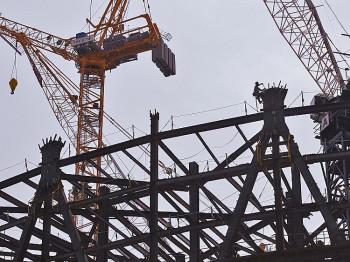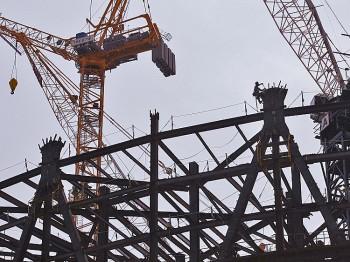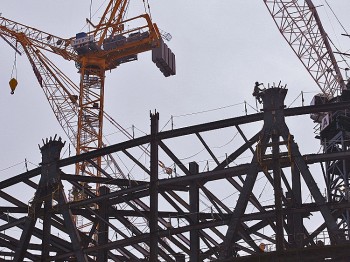Make Temporary Foreign Workers Permanent, Urges Alberta
Alberta’s immigration minister says retiring baby boomers and an economic boom predicted for western Canada has created “perfect storm” conditions for a severe labour shortage.

A worker crawls on steel at the top of the new Bow skyscraper currently being constructed in downtown Calgary. Alberta Immigration Minister Thomas Lukaszuk is calling on Ottawa to allow temporary foreign workers to stay in Canada as a way to address a looming labour shortage. Todd Korol/ Reuters
|Updated:





